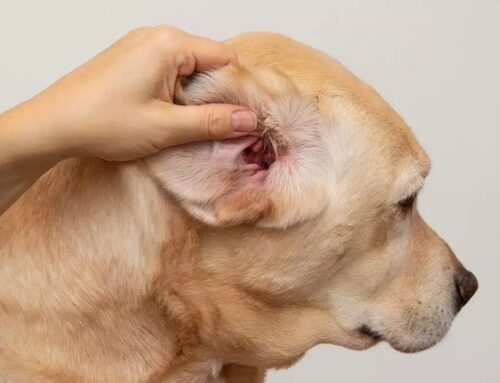A pet who is happy and feeling good is likely obvious—their tail wags or purrs usually give them away. However, when your pet is ill, they may not show obvious signs of distress. As a responsible pet owner, you must learn to pick up on changes in your pet’s mental and physical behaviors so they can be treated early, before the problem worsens. Our WesVet Animal Hospital team explores common pet health signs that could indicate an emergency or underlying illness that needs prompt veterinary attention.
1: Your pet’s appetite has changed
A pet consistently experiencing appetite loss or gain may be signaling various health issues, from dental problems to gastrointestinal (GI) disorders to organ dysfunction. Monitor your pet’s eating habits closely and consult our WesVet Animal Hospital veterinarian if you note a significant change.
2: Your pet excessively drinks and urinates
Polydipsia (i.e., increased thirst) and polyuria (i.e., increased urination) can be caused by diabetes, kidney disease, or hormonal imbalances. If your pet is drinking and urinating more than usual, with no precipitating event (e.g., hot weather, vigorous exercise), they need a visit with our team. If your pet is straining to urinate or has blood in their urine, this is an urgent matter and you must contact us right away.
3: Your pet is unusually lethargic
Lack of energy or enthusiasm for activities your pet normally enjoys could indicate pain, fever, infection, or an underlying health issue. If your pet seems unusually tired or weak, seek veterinary attention promptly.
4: Your pet is vomiting or has persistent diarrhea
Occasional vomiting or diarrhea typically is not cause for alarm, but persistent or severe episodes, especially when coupled with bloody vomit or stool, can signal GI problems, toxicity, internal injury, or infectious diseases. Dehydration can quickly become a concern, so monitor your pet closely and seek veterinary care if the condition persists.
5: Your pet has difficulty breathing
Labored breathing, coughing, gagging, wheezing, or panting excessively can indicate respiratory issues, heart problems, internal obstruction, or an allergic reaction. Any breathing difficulty warrants immediate veterinary attention for your pet to ensure proper oxygenation and to make a diagnosis.
6: Your pet’s demeanor and behavior have changed
Your pet’s behavior expresses how they feel and sudden irritability, disinterest in being held or petted, restlessness, increased vocalization, or unusual aggression can indicate they are not well and possibly in serious pain and need veterinary attention.
7: Your pet is limping or has difficulty moving
Injuries, joint problems, or neurological issues can cause your pet to limp or to find standing difficult. Any noticeable change in mobility should prompt a veterinary evaluation.
8: Your pet has visible signs of pain or discomfort
Your furry pal may show signs of pain through behaviors such as licking or biting a particular area, resistance when touched, or excessive vocalization. Diagnosis of the source of the pain early allows for treatment before the problem progresses and can improve your pet’s quality of life.
9: Your pet has a dull or oily coat
Your pet’s coat quality can tell you much about their health. A dull, unkempt coat, greasy skin, and bald patches typically mean a medical condition is underpinning the problems. Chronic diseases, allergies, and systemic function loss can cause poor coat and skin condition, and if your pet does not improve with at-home remedies like shampoos, you must consult with our team.
10: Your pet has lumps, bumps, or new wounds

Any new or unusual lumps, bumps, or lesions on your pet’s body should be examined by our veterinarian. These abnormalities can be signs of abscesses, infections, external injuries, or tumors, which all need treatment. Most lumps are benign and not cancerous, but you should play it safe and have them checked.
Be vigilant about your pet’s health and learn to recognize potential illness and injury signs to ensure your pet receives timely care. Catching and treating health issues early can prevent them from escalating into more serious problems. If you notice any concerning signs in your pet, especially signs that they are in pain, don’t hesitate to call our WesVet Animal Hospital team.






Leave A Comment